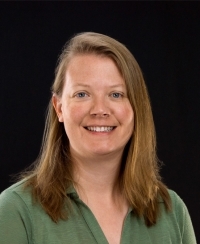Colorado 9News recently interviewed JILA Fellow and University of Colorado Boulder physics professor Heather Lewandowski as she discussed a recent paper with over 1,000 authors. This recent paper, published in the Astrophysical Journal, focused on solving the mystery of the Sun's corona, a ring of significantly hotter temperatures surrounding the Sun compared to its core. Lewandowski recruited over 1,000 undergraduate students as researchers to study this phenomenon as they analyzed data from observations of the corona. The entire project took multiple years and culminated in over 56,000 hours of research. In the 9News interview, Lewandowski stated: "It's really important for us to understand our Sun because it has a large impact on Earth."
While Lewandowski's main research focuses on quantum physics, this research project began during the COVID-19 pandemic when a colleague reached out with a unique opportunity: involving the students in actual astrophysical research. Lewandowski, who also focuses on physics education research (PER), jumped at the chance. "We thought, wouldn't it be great if we could have them [the students] do actual research?" She explained in the 9News interview. From there, Lewandowski involved over 1,000 undergraduate students in the research process, resulting in a paper with over 1,000 authors. "They were really beginning to feel like scientists," Lewandowski added in the 9News interview. "They really appreciated the process of science. It was really exciting to see that excitement from the students over three semesters."
Written by Kenna Hughes-Castleberry, JILA Science Communicator



 The Physics Frontiers Centers (PFC) program supports university-based centers and institutes where the collective efforts of a larger group of individuals can enable transformational advances in the most promising research areas. The program is designed to foster major breakthroughs at the intellectual frontiers of physics by providing needed resources such as combinations of talents, skills, disciplines, and/or specialized infrastructure, not usually available to individual investigators or small groups, in an environment in which the collective efforts of the larger group can be shown to be seminal to promoting significant progress in the science and the education of students. PFCs also include creative, substantive activities aimed at enhancing education, broadening participation of traditionally underrepresented groups, and outreach to the scientific community and general public.
The Physics Frontiers Centers (PFC) program supports university-based centers and institutes where the collective efforts of a larger group of individuals can enable transformational advances in the most promising research areas. The program is designed to foster major breakthroughs at the intellectual frontiers of physics by providing needed resources such as combinations of talents, skills, disciplines, and/or specialized infrastructure, not usually available to individual investigators or small groups, in an environment in which the collective efforts of the larger group can be shown to be seminal to promoting significant progress in the science and the education of students. PFCs also include creative, substantive activities aimed at enhancing education, broadening participation of traditionally underrepresented groups, and outreach to the scientific community and general public.